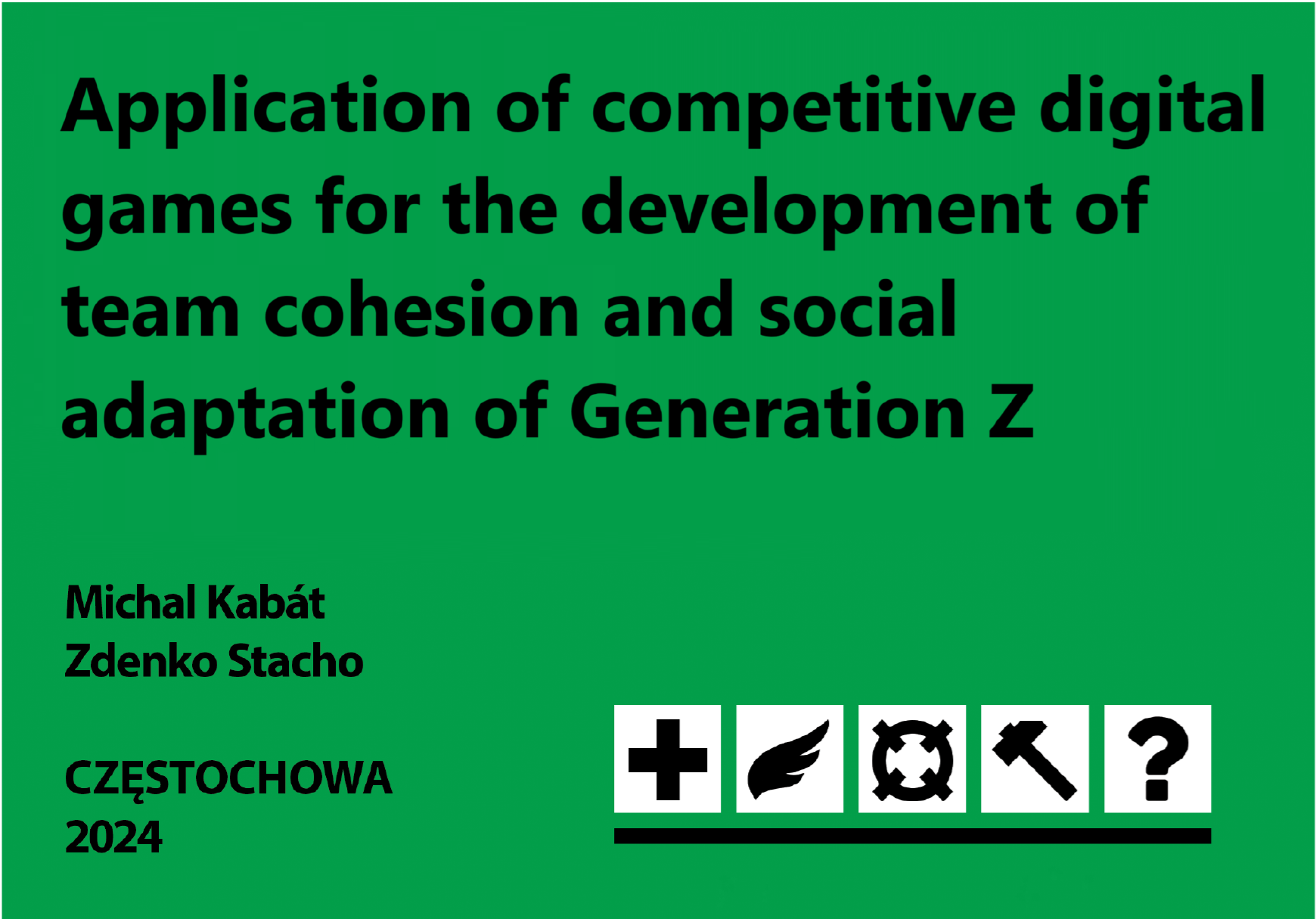Application of Competitive Digital Games for the Development
of Team Cohesion and Social Adaptation of Generation Z
Michal Kabát – Zdenko Stacho
Częstochowa: Oficyna Wydawnicza Stowarzyszenia Menedżerów Jakości i Produkcji
Prvé vydanie
117 strán
ISBN 978-83-970411-2-7
2024
The main aim of this scholarly monograph is to explore the impact of purposeful and controlled play of competitive digital games on social acceptance, personal and social adaptability, and team cohesion. The project focuses on improving the adaptive competencies of Generation Z students, particularly in the areas of rapid adaptation to new social groups and more effective collaboration within these groups. The longterm goal is that this knowledge will not only contribute to improved team skills in an academic setting but that it can also be applied in the broader context of the work and organizational environment.
In the theoretical part, we focused on a wide range of relevant literature that includes studies on the impact of digital games on various aspects of personal and social development. This literature includes findings from the fields of psychology, sociology, and education, which will provide an interdisciplinary approach to the study of this issue. The results of the theoretical review benefit the professional public in the form of publications and scientific conferences but are also used in the pedagogical process in courses such as Human Resource Management, Electronic Sport I, Game Development Practicum, Prosocial Behavior, and General Psychology I and II. This interdisciplinary approach will provide students with a comprehensive overview of the importance of adaptive skills and their relationship to teamwork and social interaction.
One of the key practical outputs of the project was the creation of a competitive digital game using the Unity tool, which works as a web application available on different platforms. This game was specifically designed based on Belbin‘s typology of team roles, allowing players to create game characters with different team roles according to individual and team needs. The game system records data on the choices and behaviors of the game characters, allowing for retrospective analysis and evaluation of team cohesion, social adaptability, and personality traits of the players. This tool represents an innovation in teamwork research and has practical applications not only in academic settings but also in corporate practice, particularly in managing teams and promoting social skills development.
